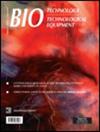Flaxseed protein isolate-alginate microbeads as encapsulating agents for enhanced survival of Enterococcus faecalis HZNU S1 during storage and in vitro gastrointestinal conditions
IF 1.4
4区 生物学
Q4 BIOTECHNOLOGY & APPLIED MICROBIOLOGY
引用次数: 0
Abstract
This study aimed to study the entrapment of Enterococcus faecalis HZNU S1 using a mixture of flaxseed protein isolate (FPI) and sodium alginate (SA) as an encapsulation agent. The characteristics of free and encapsulated cells during storage and under in vitro gastrointestinal conditions were investigated. The survival rate of encapsulated cells did not decline after 2 h exposure to pH 2.5 simulated gastric juice (SGJ), while viable free probiotics treated at the same conditions, were not found. After encapsulated probiotics were exposed to SGJ pH 2.0 for 2.0 h, the viability decreased from 10.01 to 8.01 Log CFU/g. After exposure to 1.0% and 2.0% bile salt solutions for 2 h, the viable amounts of encapsulated probiotics were still higher 8.0 Log CFU/g, whereas, viable free cells were not observed after treatment at the same conditions. Encapsulated probiotics were fully released from the microbeads in simulated intestinal juice (SIJ) in around 4 h. The viable numbers of encapsulated probiotics were only reduced 0.5 Log CFU/g after two weeks of storage (4 °C), and the viable amounts of encapsulated probiotics were reduced to 8.2 Log CFU/g at 25 °C after eight days of storage. However, the viable amounts of free cells were reduced from 10.01 to 8.8 Log CFU/mL (4 °C), and 4.0 Log CFU/mL (25 °C) during the investigated storage period, respectively. Encapsulated E. faecalis HZNU S1 showed enhanced resistance to environmental conditions, allowing the delivery of probiotics that could be used to increase foods added value.亚麻籽分离蛋白-海藻酸盐微球作为包封剂提高粪肠球菌HZNU S1在储存和体外胃肠道条件下的存活率
以亚麻籽分离蛋白(FPI)和海藻酸钠(SA)为包封剂,研究粪肠球菌HZNU S1的包封效果。研究了游离细胞和包被细胞在体外胃肠道条件下的贮藏特性。pH为2.5的模拟胃液(SGJ)处理2 h后,囊化细胞的存活率没有下降,而在相同条件下,未发现有活力的游离益生菌。包封后的益生菌在pH 2.0的SGJ中暴露2.0 h后,其活力从10.01 Log CFU/g下降到8.01 Log CFU/g。在1.0%和2.0%胆盐溶液中处理2 h后,包封益生菌的活菌量仍高于8.0 Log CFU/g,而在相同条件下处理后,未观察到活的游离细胞。被封装的益生菌在4 h左右从模拟肠液(SIJ)中的微珠中完全释放出来。在4℃的贮藏2周后,被封装的益生菌活菌数仅减少0.5 Log CFU/g,在25℃的贮藏8天后,被封装的益生菌活菌量减少到8.2 Log CFU/g。然而,在实验期间,游离细胞的活菌量分别从10.01降至8.8 Log CFU/mL(4°C)和4.0 Log CFU/mL(25°C)。包封的粪肠杆菌HZNU S1对环境条件的抵抗力增强,允许益生菌的传递,可用于增加食品的附加值。
本文章由计算机程序翻译,如有差异,请以英文原文为准。
求助全文
约1分钟内获得全文
求助全文
来源期刊

Biotechnology & Biotechnological Equipment
工程技术-生物工程与应用微生物
CiteScore
3.10
自引率
0.00%
发文量
90
审稿时长
1 months
期刊介绍:
Biotechnology & Biotechnological Equipment (B&BE) is an international open access journal publishing cutting-edge research. A modern world requires modern biotechnology and nanobiology. The journal is a forum that provides society with valuable information for a healthy and better life and promotes “the Science and Culture of Nature”.
The journal publishes original research and reviews with a multidisciplinary perspective; expanded case reports with a focus on molecular medical research and advanced practice in evidence-based medicine are also considered.
 求助内容:
求助内容: 应助结果提醒方式:
应助结果提醒方式:


